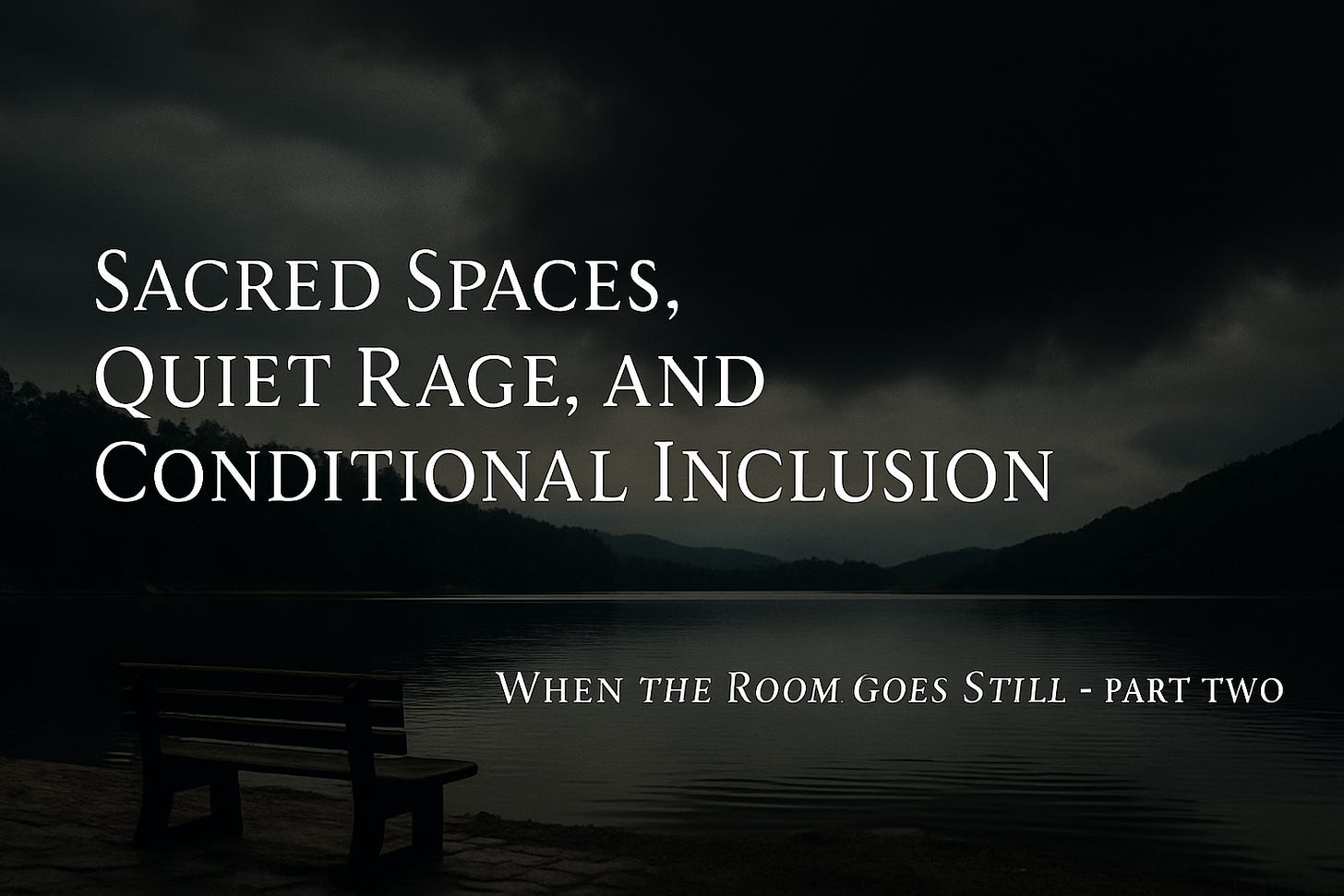When the Room Goes Still: On Sacred Spaces, Quiet Rage and Conditional Inclusion (Part Two)
Continued from Part One—”When the Room Goes Still: On Language, Surveillance, and the White Glitch”.
If this is your first time here, welcome! This is Part 2 of a two-part reflection. If you haven’t read Part 1 yet, I highly recommend starting there— it’s fire, not gonna lie.
III. The View
I was invited as a plus-one.
My partner—now my spouse—was attending…
Keep reading with a 7-day free trial
Subscribe to Say it With Your Chest to keep reading this post and get 7 days of free access to the full post archives.



